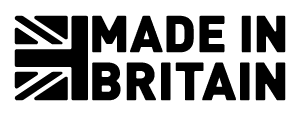(3 minute read)
According to OECD data published in 2024, one in six adults in the UK has a level of literacy considered to be at a level that is very poor. According to the National Literacy Trust, this means that they may have only basic vocabulary, the ability to locate a single piece of information in a short text or read short paragraphs. We know that this means they must have struggled at school and often struggle in the work place. For most jobs people need to have at least a basic level of reading, writing and maths. And according to UK Government research, 25% of young offenders in the UK have a reading age below that of the average 7-year-old.
Reading and Attainment in School
There is a clear link between reading literacy levels and success at GCSE. GCSEs are taken at the end of KS4, when students are 16 years old. The reading age required to fully access most GCSE curriculums and exams is over 15 years. A study by GL Assessment found that a quarter of all 15-year-olds have a reading age of 12 or below. Pupils who do not meet the required level of reading at the end of primary school, struggle to get a Grade 4 pass grade at GCSE. Government data suggests that a quarter of all 11-year-olds do not meet the expected standard for reading at the end of Year 6. This means that they struggle to access the secondary school curriculum and as they move through secondary school, they often get further and further behind, unless interventions are put in place.
Supporting Reading Progress in Secondary School
The main findings of the government research and inspection evidence was that pupils who left primary school below the expected reading age were still able to become proficient readers, and able to access the secondary curriculum with the right support. This happened when school leaders shared a commitment to a whole school reading strategy, provided targeted support and shared information about pupils and interventions. Data about pupils gave their reading ages but also “included their strengths, what they struggle with, interventions that are happening or that have already happened, and strategies to
Tracking Reading Using Envision
Envision is a totally flexible system that enables continuous tracking across all age ranges and any group of learners. It also has the ability to tracking reading ages, reading interventions and to include narrative updates on areas that students might be struggling with. If staff are easily able to see what aspects of reading that a student struggles with or what intervention they are receiving, they are able to use this information to plan lessons and plug gaps in reading knowledge.
Conclusion
It is clear that reading at an age-appropriate level is important to access the secondary school curriculum, school exams and have a chance of succeeding later in life. Tracking reading interventions and reading progress means that schools will know when pupils are making progress, and if they are not improving quickly enough, different interventions may be needed. They are also able to monitor the effectiveness of the reading strategy and individual interventions.
.Book your free demo here: Educater Envision








